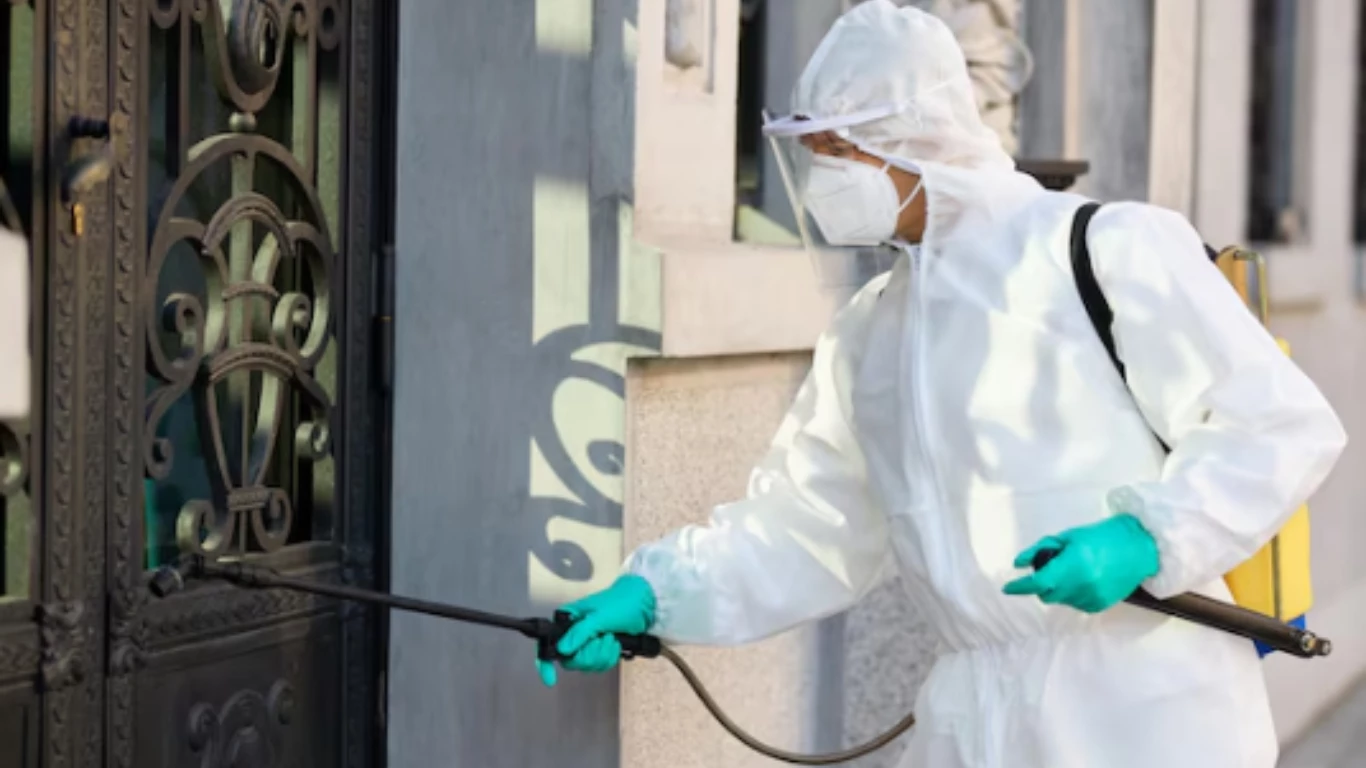 Pest control in apartments presents unique challenges that require tailored solutions. In urban settings, high-density living and shared spaces create a perfect environment for pests like rodents, cockroaches, and bedbugs to thrive. These pests not only cause discomfort but can also pose health risks and damage property.
Pest control in apartments presents unique challenges that require tailored solutions. In urban settings, high-density living and shared spaces create a perfect environment for pests like rodents, cockroaches, and bedbugs to thrive. These pests not only cause discomfort but can also pose health risks and damage property.
Effective pest control in apartments involves a combination of prevention, prompt action, and professional help. Residents and property managers need to work together to identify and address pest issues quickly. Regular inspections, proper sanitation, and sealing entry points are key strategies.
Professional pest control services provide targeted treatments and ongoing monitoring to ensure a pest-free living environment. By understanding the specific challenges of urban pest control, apartment communities can maintain a healthy and comfortable home for all residents.
What are the most common pests found in urban apartment buildings?
The most common pests found in urban apartment buildings include:
- Cockroaches: Often found in kitchens and bathrooms, they thrive in warm, humid environments and can spread diseases.
- Rodents (Rats and Mice): They enter buildings searching for food and shelter, contaminating food and spreading diseases through their droppings.
- Bedbugs: These pests infest bedding and furniture, causing itchy bites and spreading rapidly through shared walls and furniture.
- Ants: Commonly found in kitchens and bathrooms, they are attracted to food and moisture.
- Flies: Including house flies and fruit flies, they are attracted to food and organic waste, often breeding in garbage and drains.
- Termites: These pests can cause significant structural damage by feeding on wood and other building materials.
- Spiders: While most are harmless, their presence can be unsettling, and some species can pose health risks.
- Silverfish: These small insects thrive in damp environments and can damage paper, clothing, and other materials.
- Pantry Pests: Insects like beetles and moths that contaminate stored food products.
- Mosquitoes: Attracted to standing water, they can transmit diseases and are a common nuisance in urban settings.
How does professional pest control differ from DIY methods for apartments?
Professional pest control and DIY methods for apartments differ significantly in terms of effectiveness, approach, and long-term results:
- Expertise and Knowledge
- Professional Pest Control: Technicians are trained and certified, possessing in-depth knowledge of various pests, their behaviors, and the most effective treatment methods. They can identify pest species accurately and tailor treatment plans accordingly.
- DIY Methods: Typically rely on general knowledge and over-the-counter products, which may not address the specific type of infestation or its root cause.
- Comprehensive Solutions
- Professional Pest Control: Offers a comprehensive approach, including inspection, identification, treatment, and follow-up. Professionals use Integrated Pest Management (IPM) strategies, combining chemical and non-chemical methods to address and prevent future infestations.
- DIY Methods: Often focus on treating visible pests rather than addressing underlying issues. This can lead to temporary relief but may not prevent recurrence.
- Safety and Effectiveness:
- Professional Pest Control: Uses advanced, industry-approved products and techniques that are safe for residents and pets when applied correctly. Professionals are trained to handle and apply pesticides safely.
- DIY Methods: This may involve using readily available products that could be less effective and potentially hazardous if misused or over-applied.
- Long-term Prevention
- Professional Pest Control provides ongoing monitoring and maintenance plans to ensure pests do not return. They can also identify and address potential entry points and environmental factors contributing to infestations.
- DIY Methods usually lack ongoing support and may not include preventive measures, making pests more likely to return.
- Cost and Time
- Professional Pest Control: While initially more expensive, professional services can be more cost-effective in the long run due to their thoroughness and the prevention of future infestations.
- DIY Methods: These may appear cheaper upfront, but repeated purchases of products and the potential for persistent infestations can lead to higher long-term costs and frustration.
- Convenience
- Professional Pest Control provides convenience by handling the entire process, from inspection to treatment and follow-up, saving residents time and effort.
- DIY Methods: Require significant time and effort from residents, including research, application, and monitoring.
Professional pest control offers specialized expertise, comprehensive and safe solutions, long-term prevention, and convenience, making it generally more effective and reliable than DIY methods for apartment pest infestations.
What are the potential risks associated with pest infestations in apartment complexes?
Pest infestations in apartment complexes pose several potential risks, including:
- Health Risks
- Disease Transmission: Pests such as rodents, cockroaches, and flies can carry and spread diseases like salmonella, hantavirus, and E. coli through their droppings, urine, and physical contact.
- Allergic Reactions and Asthma: Pests like cockroaches, dust mites, and bedbugs can trigger allergies and asthma attacks through their droppings shed skin, and saliva.
- Bites and Stings: Bedbugs, fleas, mosquitoes, and spiders can bite or sting, causing itching, pain, and potential allergic reactions or infections.
- Property Damage
- Structural Damage: Termites and carpenter ants can cause significant damage to wooden structures, compromising the integrity of buildings.
- Electrical Hazards: Rodents often chew on electrical wiring, leading to short circuits, equipment damage, or even fires.
- Contamination: Pantry pests, such as beetles and moths, can infest and contaminate stored food products, leading to waste and health hazards.
- Economic Costs
- Repair Costs: Pest damage can lead to costly repairs for building structures, electrical systems, and personal belongings.
- Pest Control Expenses: Repeated or extensive infestations may require professional pest control services, adding to maintenance costs for property managers and tenants.
- Decreased Property Value: Persistent pest problems can reduce an apartment complex’s desirability and market value.
- Legal and Regulatory Issues
- Non-compliance with Health Codes: Failure to manage pest infestations can result in violations of health and safety regulations, which can lead to fines and legal action.
- Tenant Complaints and Lawsuits: If infestations are not adequately addressed, tenants may file complaints or lawsuits against property owners or managers, potentially leading to legal costs and compensation claims.
- Reputation Damage
- Negative Reviews: Pests in apartment complexes can lead to negative reviews and word-of-mouth, harming the property’s reputation and making attracting and retaining tenants difficult.
- Tenant Turnover: High turnover rates can result from tenants moving out due to pest issues, leading to increased vacancy rates and associated costs for finding new tenants.
Pest infestations in apartment complexes pose serious health risks, cause property damage, incur economic costs, lead to legal issues, and damage reputations, emphasizing the importance of effective pest management and prevention strategies.
What are some preventive measures that apartment dwellers can take to deter pests?
Apartment dwellers can deter pests and maintain a healthy environment by following these measures:
- Cleanliness
- Regularly clean living areas, especially kitchens and bathrooms.
- Store food in sealed containers, refrigerate perishables and clean up spills immediately.
- Dispose of garbage periodically using trash cans with tight lids.
- Entry Points
- Seal cracks and gaps around windows, doors, and plumbing with caulk or weather stripping.
- Installed and repaired window and door screens to prevent pests from entering.
- Moisture Control
- Fix leaky faucets, pipes, and appliances.
- Use dehumidifiers and ensure proper ventilation in kitchens and bathrooms.
- Clutter Management
- Declutter regularly to eliminate hiding places for pests.
- Store items in plastic bins with lids instead of cardboard boxes.
- Pet Care
- Clean pet food dishes and store pet food in sealed containers.
- Groom pets regularly to check for fleas and ticks.
- Monitoring and Reporting
- Inspect for signs of pests and report issues to property management promptly.
- Natural Deterrents
- Use herbs and essential oils like peppermint or lavender.
- Place pest-repellent plants near windows and doors, such as basil or mint.
Implementing these measures helps maintain a clean, pest-free apartment.
Protect Your Apartment with Effective Pest Solutions
Protect your apartment with effective pest solutions from us. We understand the unique challenges of urban living and offer comprehensive pest control services to keep your home safe and pest-free.
Our team of experts utilizes advanced techniques and eco-friendly products to tackle infestations of all kinds, including rodents, cockroaches, bedbugs, and more. We provide thorough inspections, targeted treatments, and preventative measures to ensure long-term protection.
Our professional pest control services allow you to enjoy peace of mind and a healthy living environment. Contact us today to learn more about our tailored pest solutions for your apartment.
